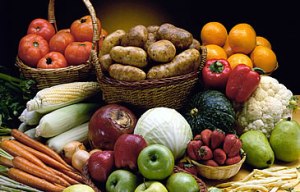You must know what importance of carbohydrates is in your body. This article introduces, “What are carbohydrates?” It also introduces what carbohydrates are good for you. Carbohydrates are found in a wide array of foods. A carbohydrate is a biological molecule consisting of carbon, hydrogen, and oxygen atoms. The basic role of carbohydrates in the human diet is to supply energy. The best and most preferred sources of fuel for human body are Carbohydrates. Sugars, fibers, and starches are the most common and abundant forms of carbohydrates. Foods high in carbohydrates are the important part of a healthy diet.
carbohydrates?” It also introduces what carbohydrates are good for you. Carbohydrates are found in a wide array of foods. A carbohydrate is a biological molecule consisting of carbon, hydrogen, and oxygen atoms. The basic role of carbohydrates in the human diet is to supply energy. The best and most preferred sources of fuel for human body are Carbohydrates. Sugars, fibers, and starches are the most common and abundant forms of carbohydrates. Foods high in carbohydrates are the important part of a healthy diet.
How is importance of carbohydrates in the body?
The best and most preferred sources of fuel for human body are carbohydrates and especially for all the important organs including Brain, Heart, Kidney, Liver, Pancreas, and Stomach. More important is that your muscles and liver require enough carbohydrates to create energy for body function. It is remarkable that if your body does not get energy fuel from other sources, it will start using your muscle tissue for creating energy. To avoid utilizing muscle tissue as a form of energy, you must be careful to eat carbohydrates foods in order to fulfill the demands of fuel in your body. But this is not a usual matter; your body will only start utilizing muscle tissue for energy under extreme conditions, such as if you are very sick, severely malnourished or not consuming enough calories over an extended period of time to support normal body functions. So, importance of carbohydrates in the body is very high. Approximately half of your daily calories should come from carbohydrates to get enough sugar from your diet for creating energy.
How do carbohydrates provide energy?
Every cell of your body is the container of food particles which are the sources of energy for body functions, such as moving, breathing, maintaining your heartbeat, and healing damaged tissue. You must eat carbohydrates foods to fill the demand of fuel to create energy. When you eat carbohydrates foods, food digestion starts and your body breaks down carbohydrates into simple sugars. Sugars are converted to glucose. Glucose travels in your bloodstream as blood sugar to enter the cells where it is used to create energy. If you consume more carbohydrates producing more glucose than your body needs, this glucose (blood sugar) is stored in the body converting as glycogen (a type of sugar), for times when the body will need it. Glycogen is stored and produced by the hepatocytes in the liver. The main function of glycogen is as a secondary long-term energy-storage molecule. Glycogen is also stored in muscle tissue (cells). Muscles and liver require enough carbohydrates to create energy. Whenever your body needs glucose for energy, and no sugar is coming in from your diet, then glycogen is released from your muscles and broken down to supply enough glucose for energy to last about half a day. In this way it uses your muscle tissue for creating energy.
Disadvantages of excess carbohydrates:

There are many health benefits associated with eating carbohydrates, but overindulgence in carbohydrates can cause bloating, sadness, guilt and weight gain. Another demerit of excess carbs associated with diabetes. As your body breaks down carbohydrates into glucose, it delivers glucose to your bloodstream to supply your body’s cells with fuel for energy. If glucose can’t enter the cells, cells can’t produce energy and you feel weakness due to lack of energy fuel, glucose. This may happen when you are suffering from insulin deficiency because insulin helps glucose enter the cells. If cells get glucose, cells can produce energy for body function. Another important thing is that if glucose in the cells remain unused, this unused glucose is converted to glycogen by a chemical process called glycogenesis, and is stored in muscle tissues and liver. Glucose is an analyze in common medical blood tests. A high fasting glucose, blood sugar level in the bloodstream may be a sign of prediabetes or diabetes mellitus.
Relationship between diabetes and glucose:
Importance of carbohydrates in the body is same as importance of glucose in human health because glucose is produced from carbohydrates. So considering the importance, glucose is an analyze in common medical blood tests. Eating or fasting prior to taking a blood sample has an effect on analyses for glucose in the bloodstream; a high fasting glucose blood sugar level in the bloodstream may be a sign of prediabetes or diabetes mellitus. Diabetes is a metabolic disorder where the body is unable to regulate levels of glucose in the bloodstream. It may be due to insulin deficiency in the body. Insulin is a hormone that regulates glucose levels, allowing the body’s cells to absorb and use glucose for energy. Without insulin, glucose cannot enter the cells and therefore cannot be used as fuel to create energy. However, blood sugar cannot go into most of your cells directly. After you eat food and your blood sugar level rises, cells in your pancreas are signaled to release insulin into your bloodstream. Insulin then attaches to and signals cells to absorb sugar from the bloodstream. Insulin is often described as a “key,” which unlocks the cell’s door to allow sugar to enter the cells and be used for energy creation. When the pancreas, a gland behind the stomach, does not produce enough insulin, blood sugar cannot enter the cells and blood sugar level in the bloodstream becomes high which indicates Diabetes.
Different types of carbohydrates:
Foods contain nutrients that provide energy, and one of these is carbohydrates. You must know, “What are carbohydrates foods?” There are two major types of carbohydrates (or carbs) in foods: Simple and Complex.
Simple carbohydrates food:
There are many food sources of carbohydrates. Among the main food sources of carbohydrates, simple carbohydrates are made of just one or two sugar molecules. Sugars such as fructose, glucose, and lactose. They are the quickest source of energy, as they are very rapidly digested. Because simple carbohydrates exhibit a sweet flavor, most sweet-tasting foods contain simple carbohydrates. Fruits, such as bananas, mangoes and raisins, fruit juice and honey are all high in simple carbohydrates. Lactose is a type of natural sugar found in milk and dairy products. As lactose is classified as a simple carbohydrate, milk and yogurt are also good sources of simple carbs. Sucrose, the chemical name for sugar, is also a simple carbs, thus any food or dessert containing sugar, sugar cane or cane juice is a source of simple carbs.
Complex carbohydrates foods:
Among the main food sources of carbohydrates, complex carbohydrates may be referred to as dietary starch and are made of sugar molecules strung together like a necklace or branched like a coil. They are often rich in fiber, thus satisfying and health promoting. Complex carbohydrates are commonly found in whole plant foods and, therefore, are also often high in vitamins and minerals.
Some great sources of complex carbohydrates: Beans, lentils, peas, potatoes, sweet potatoes, pumpkin, oatmeal, pasta, whole-grain breads.
Above all, both the simple and complex carbohydrates are turned into glucose (blood sugar) in the body and are used as energy. Approximately half of your daily calories should come from carbohydrates to get enough sugar from your diet for energy. So you can easily understand the importance of carbohydrates in the body. Your body also creates energy from proteins and fat, but carbohydrates are considered the best source of energy. You must be aware that sugar is the only fuel your brain cells and certain other body cells use to create energy. Glucose supplies almost all the energy for the brain, so its availability influences psychological processes. When glucose is low, psychological processes requiring mental effort (e.g., self-control, effortful decision-making) are impaired. There are many health benefits associated with eating carbohydrates, but overindulgence in carbohydrates can cause bloating, sadness, guilt and weight gain. Another demerit of eating excess carbs is associated with diabetes.
Citation: